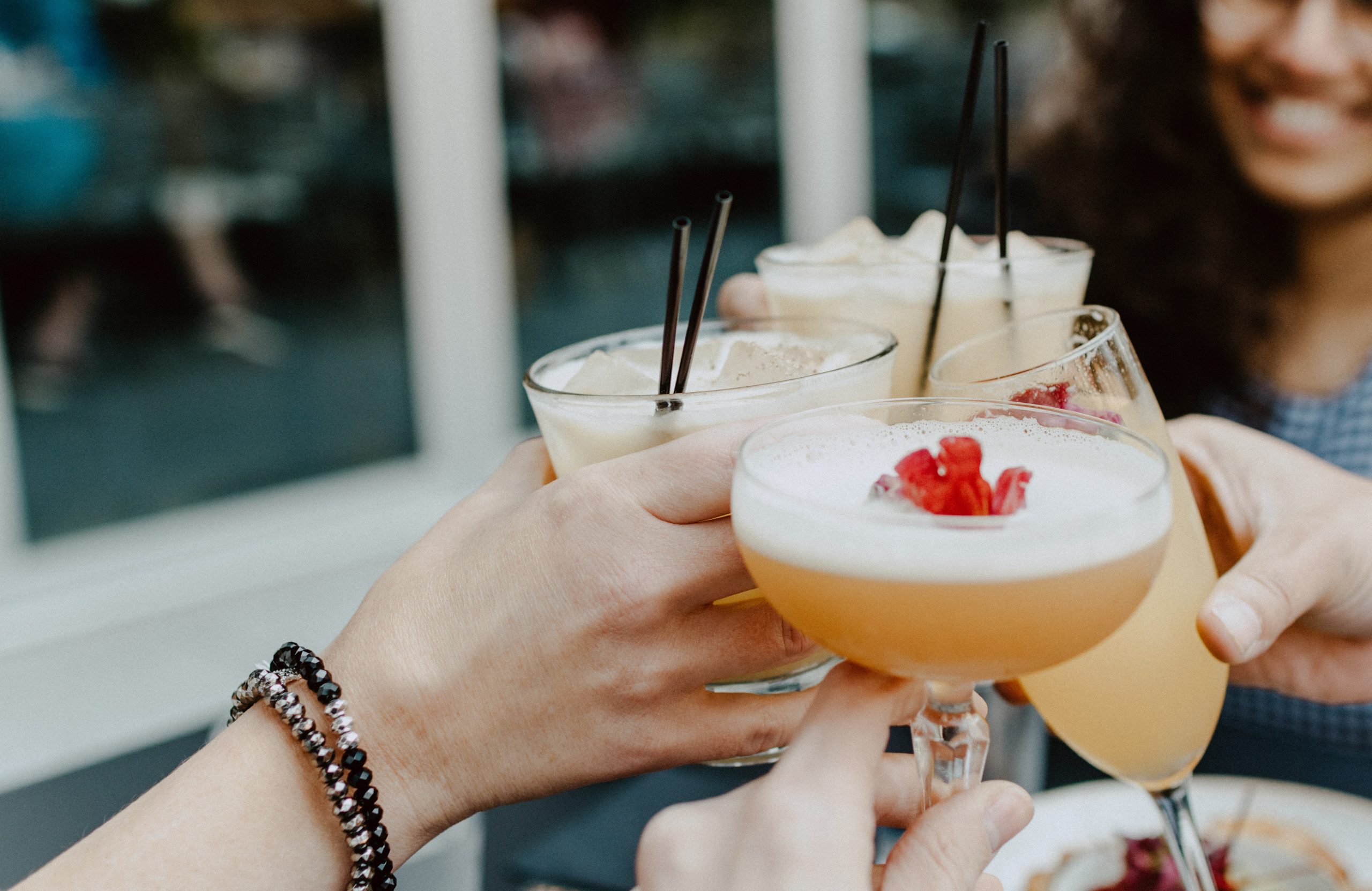The OLIO app was set up in 2015, initially aiming to connect neighbours to help them live a less wasteful and more caring life. Since its launch the app has facilitated the sharing of 35 million food portions, saving an estimated 100 million car miles and 5.1 billion litres of water normally used in food production. We talk to co-founder Tessa Clarke about the app and the huge environmental impact of food waste.
Hi Tessa. Thanks for talking to us! Can you tell us about your app OLIO? Some of our readers might not have used it. What does it do and how exactly does it work?
Tessa Clarke: OLIO is a local community app which connects neighbours with each other and with local businesses so surplus food and other household items can be given away, not thrown away. This could be absolutely anything: food nearing its sell-by date in local stores, spare vegetables, bread from your bakery, as well as old toys, books and toiletries which you no longer need.
The app is really easy to use. To make an item available, users simply open the app, add a photo, description, and when and where the item is available for pick-up. To pick up items, users simply browse the listings available nearby, request whatever takes their fancy and arrange a pick-up via private messaging.
We believe that small actions can lead to big change. Collectively – one rescued cupcake, carrot or bottle of lotion at a time – we can reduce waste and help others in the local area, building a more sustainable future where our most precious resources are shared, not thrown away.
Is it free or do users have to pay for some features?
Tessa Clarke: The app is free to download and to use. Users can choose to become an OLIO supporter if they would like – someone who’s helping our planet-saving mission by subscribing to OLIO. This helps cover some of our operating costs, and in return, OLIO Supporters get access to additional features that include a map view of listings and a special Supporter profile.
What started you and Saasha on this journey? How did you discover there was a real ‘appetite’ for sharing unused food?
Tessa Clarke: My co-founder Saasha Celestial-One and I founded OLIO in 2015, following a personal experience I had when moving back to the UK from Switzerland. On the day of moving, I realised I had food left in the fridge, which the removal team asked me to get rid of. Not wanting to throw away perfectly good food, I set about knocking on doors trying to find someone to give it to in the local area. It was then that a lightbulb moment occurred sparking the idea to create a food-sharing facility which would revolutionise neighbourhoods across the globe.
Food waste is the third-largest contributor to climate change. How exactly does food waste harm the planet?
Tessa Clarke: Food waste is really bad for the environment. A landmass larger than China is used to grow food each year that is never eaten – land that has been deforested, species that have been driven to extinction, indigenous populations that have been moved, soil that has been degraded – all to produce food that we then just throw away. In addition, food that is never eaten accounts for 25% of all fresh water consumption globally.
Not only are all of the resources that went into creating the uneaten food wasted, but when food waste goes to landfill, which is where the vast majority of it ends up, it decomposes without access to oxygen and creates methane, which is 25x more deadly than carbon dioxide.
Every which way you look at it, food waste is a major culprit in destroying our planet. If food waste were a country, it would be the third-largest emitter of greenhouse gases after China and the USA.
If you look at food waste in the UK, half of all food waste takes place in the home. A typical family is throwing away 20% of their weekly shop, which is £700 per family per year, and collectively adds up to £14 billion worth of perfectly good food being thrown away every year.
Since the beginning of the pandemic, listings on OLIO have grown fivefold and you now have over 5 million community members. What’s driving this huge increase, do you think?
Tessa Clarke: There are several reasons. Firstly, in the early days of the pandemic, we saw photos of empty supermarket shelves, which for many people was a powerful reminder of just how precious food really is.
In a time of crisis, it was also entirely natural for people to want to connect with their local community, either to seek help or give help. Living and working from home also made it much easier to organise for a pickup and provided a nice way to break up the day. And finally, many people experienced the ‘great pause’ which led to a re-evaluation of how they were leading their lives, and with freak weather events unfolding in parallel, many resolved to live more sustainably. All these factors added together to create a ‘perfect storm’ of demand for OLIO.
What are the challenges of running a business that is growing at this pace?
Tessa Clarke: Whilst it was incredibly stressful adapting the business to be covid compliant in a compressed timeframe, once the growth started it was actually enormously gratifying, because this is what we’d been working towards for the previous five years! Perhaps the biggest challenge is the one we’re going through now. We’re bringing in a whole new senior management team who we need to get up to speed with the business and gel together whilst continuing to deliver growth.
You have also expanded the app so people can share other things too, haven’t you?
Tessa Clarke: Yes! OLIOers can give away household items such as toiletries, kitchen appliances, books, clothes and toys.
Last year we also created the MADE marketplace on the app, providing an opportunity for local makers to buy and sell homemade foods or crafts; enabling its community to have a second income stream based on sustainability and selling to those on their doorstep. And last month we created a new section that enables people to lend and borrow everyday items too.
Finally, how do you minimise food waste in your own family?
I try to follow my rule of the five Ss:
- SHOP with a plan of your meals for the week (and make sure that one is a cupboard meal so if your plans change, no fresh food is wasted)
- STORE your food properly. There are loads of great tips online. Some of my favourites are to never store onions and potatoes together; never put tomatoes in the fridge; and always put a beeswax wrap or tin foil hat on the top of a banana bunch to delay ripening
- SERVE sensible portion sizes. A simple hack here is to use small plates!
- SAVE your leftovers and get creative with them. Because food tastes so much better after it’s marinated in the fridge for a few days
- SHARE your spare on OLIO if all else fails!
Instagram: @olio.app







